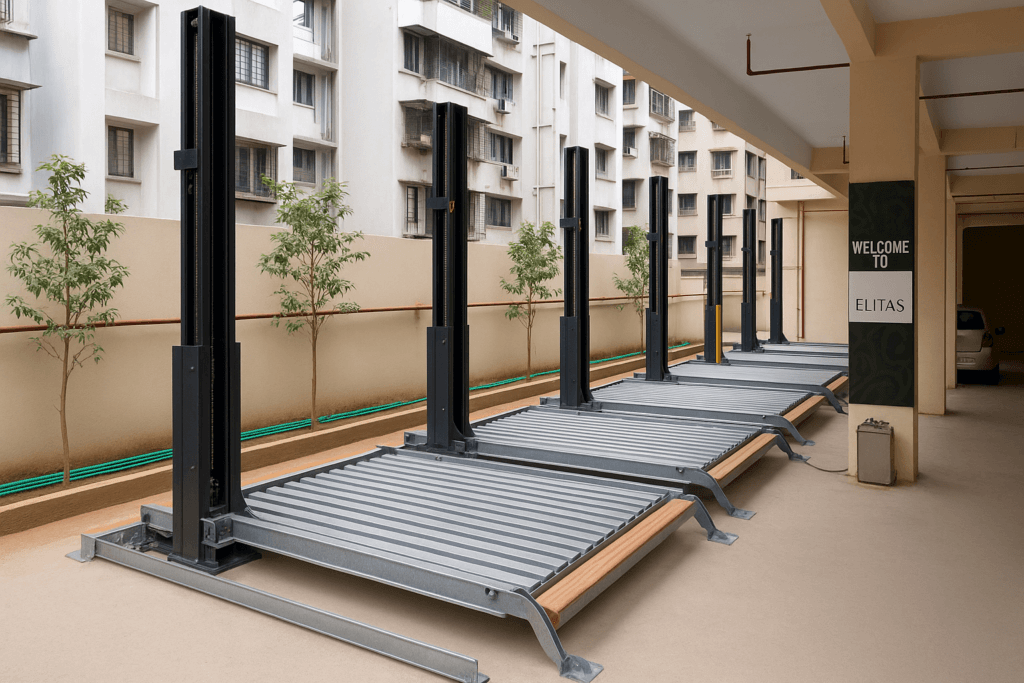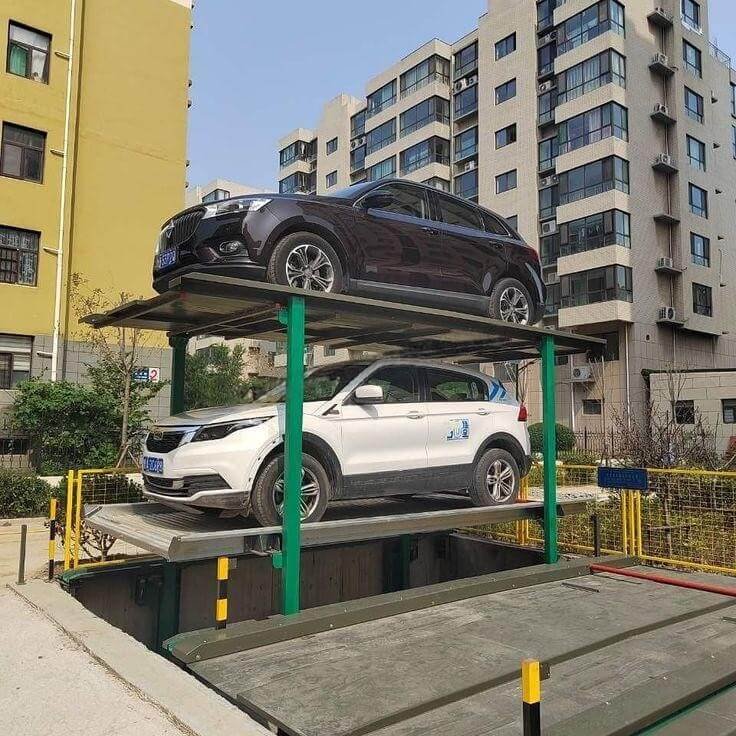In urban India, finding a parking space has become a growing problem. With rising vehicle numbers and shrinking spaces, conventional parking methods often fail to meet demand. Puzzle Parking System are a smart and efficient solution. These mechanical systems allow cars to be parked in stacked, interlocking grids—maximising limited space. Popular in metro cities, this system is ideal for residential complexes, offices, malls, and public parking areas.

How Puzzle Parking Systems Work
A platform that resembles a grid that moves both vertically and horizontally is used by a puzzle parking system. Platforms where cars are parked can move to provide room for loading or unloading. Without having to move other vehicles, the mechanism accesses parked autos using an intelligent system. It operates smoothly thanks to electric motors and sensors. Time and effort are significantly reduced by this technique, particularly in areas with heavy traffic.
Advantages of Puzzle Parking Systems
Space optimisation is one of the main advantages of a puzzle parking system. Parking capacity can be increased up to three times by stacking cars. Compared to conventional techniques, it uses less land and is more energy-efficient. In the long run, these systems are also economical and require minimal maintenance. Users have shorter wait times when operations are automated. Most significantly, it lessens traffic congestion and street parking in crowded places.
Urban Parking Challenges in India
Parking is a daily challenge in places like Bengaluru, Delhi, and Mumbai. Chaos is exacerbated by rising car ownership and dwindling open areas. Public spaces, business districts, and residential neighbourhoods frequently lack organised parking. Traffic jams, unlawful parking, and safety hazards result from this. Sustainable traffic management and contemporary urban growth depend on intelligent automated parking systems like the puzzle parking system.
Ideal for Residential and Commercial Use
Commercial buildings, corporate offices, and apartment complexes can all benefit from puzzle parking systems. In order to comply with parking regulations, builders and developers frequently incorporate them into new developments. It provides homes with a space-saving, convenient, and small alternative. Better traffic flow and less congestion are advantageous for commercial settings like malls and hospitals. Additionally, it raises a property’s worth and increases its appeal to buyers.
Installation and Setup Requirements
It takes some civil work to install a jigsaw parking system. Safety barriers, a power source, and a level surface are necessary. Depending on available space and usage requirements, the system can be specially developed. Since most systems are modular, expansion is simple. Both indoor and outdoor installation are possible. To guarantee safe and effective operation, careful site planning and respect for local building requirements are essential.
Safety Features and Technology
These days, emergency stop features and safety sensors are standard on puzzle parking systems. To avoid mishaps, they employ limit switches and clever control panels. Even in the event of a power outage, backup power systems, overload sensors, and anti-fall devices guarantee seamless operation. If implemented in confined spaces or basements, ventilation and fire safety can be combined. The system is safe for everyday usage in both residential and commercial settings thanks to these features.
Cost Consideration and Return on Investment
The number of parking spaces, degree of automation, and site factors all affect the initial cost of a puzzle parking system. Nonetheless, it is cost-effective due to the long-term savings on land use, upkeep, and operational effectiveness. Increased property value and quicker sales are common ways for real estate developers to recoup their investments. It increases client convenience for commercial installations, which boosts profits.
Maintenance and Operational Needs
Preventive maintenance and routine inspections are necessary for automatic parking systems. Greasing moving parts, verifying control panels, and examining safety devices are all part of monthly service inspections. Well-kept systems have a lifespan of 15–20 years. For seamless operation, facility or security personnel must receive operational training. Property owners can rest easy knowing that repairs, inspections, and emergency services are covered by annual maintenance contracts (AMCs).
Comparison with Other Parking Systems
Puzzle parking solutions can save up to 60% more space than traditional parking. They provide quicker vehicle retrieval than rotary or multi-level parking systems. Another option is stack parking, but it is less flexible and has less horizontal movement than puzzle parking. Puzzle parking, as opposed to fully automated car elevators, improves turnaround time by enabling numerous vehicles to move simultaneously. It offers a balance between cost, space usage, and automation.

Why Indian Developers Choose Puzzle Parking
Urban real estate is costly in India. To satisfy municipal laws and buyer expectations, developers are implementing space-saving strategies. Puzzle parking systems free up space that would otherwise be utilised for basements and ramps, allowing more apartments per plot. Additionally, it aids in maximising the use of FSI (Floor Space Index). These systems are a sensible option for high-density developments across the nation since they are inexpensive, adaptable, and simple to install.
For Indian cities, Puzzle Parking Systems provides a cutting-edge, effective, and compact parking option. They aid in the resolution of important issues such as vehicle management in crowded urban areas, traffic congestion, and space shortage. This intelligent technology is a good fit for India’s expanding urban needs since it offers safety, convenience, and environmental advantages. Puzzle parking will become a crucial component of urban infrastructure nationwide as cities grow smarter and more vertical. Contact us.

